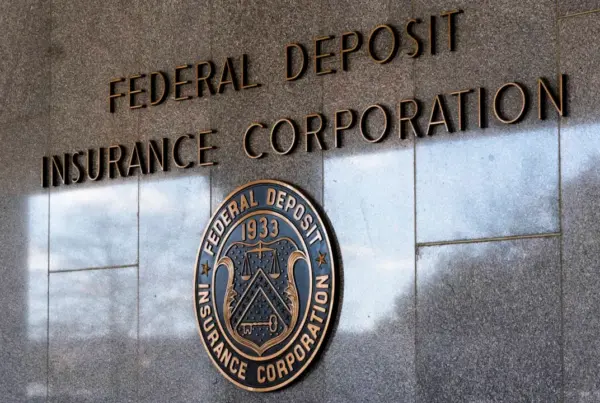To: [Recipient Name]From: [Your Name]Date: January 21, 2025
Subject: FDIC Withdrawal from the Network of Central Banks and Supervisors for Greening the Financial System
I. Introduction
On January 21, 2025, the Federal Deposit Insurance Corporation (FDIC) made a decisive move by announcing its withdrawal from the Network of Central Banks and Supervisors for Greening the Financial System (NGFS). This decision is pivotal as it underscores a shift in focus for the FDIC, emphasizing its core mandate over involvement in broader sustainability initiatives. The implications of this withdrawal are far-reaching, affecting regulatory frameworks, market perception, and institutional strategies across the financial sector. This memorandum explores the reasons behind the FDIC’s decision, its potential impact on the sector, and strategic recommendations for stakeholders navigating this change.
II. Key Points of the Withdrawal
The FDIC’s withdrawal from the NGFS highlights a significant regulatory realignment. The primary reason cited is the misalignment of the NGFS’s sustainability-driven agenda with the FDIC’s statutory responsibilities. The FDIC has a focused mandate on ensuring deposit protection and financial stability rather than engaging in climate-related frameworks. This immediate withdrawal signifies a narrowed scope of participation in sustainability matters, emphasizing regulatory duties over environmental considerations. While distancing itself from the NGFS, the FDIC reassures its continued commitment to safeguarding financial systems, signaling that sustainability will not directly influence its regulatory agenda.
III. Implications of the Withdrawal
The implications of the FDIC’s withdrawal are multifaceted. From a regulatory perspective, this move clarifies the FDIC’s role, distinguishing between financial oversight and environmental responsibilities. For financial institutions, this decision necessitates a reevaluation of sustainability strategies, especially those aligned with NGFS standards. Without FDIC support, institutions may face challenges reconciling sustainability initiatives with regulatory expectations. Furthermore, this decision may shift market perceptions, influencing the confidence of investors and stakeholders in ESG-driven institutions. Understanding these nuanced impacts will be crucial for financial entities as they adjust to this regulatory pivot.
IV. Recommended Actions
Financial institutions are advised to undertake several strategic actions in response to the FDIC’s decision. Firstly, reviewing and possibly reconfiguring compliance frameworks concerning sustainability and climate risk is essential. This ensures alignment with regulatory expectations outside the NGFS scope. Secondly, engaging proactively with other regulatory bodies such as the Financial Stability Board (FSB) or Basel Committee on Banking Supervision could offer alternative pathways for sustainability engagement. Thirdly, ongoing monitoring of FDIC’s regulatory focus and emerging guidelines can provide timely insights for strategic adjustments. Lastly, clear communication with stakeholders about the implications of the FDIC’s withdrawal ensures transparency and continuity in sustainability commitments.
V. Conclusion
The FDIC’s exit from the NGFS reflects its broader strategy to concentrate on core regulatory tasks rather than intertwining them with broader sustainability agendas. For financial institutions, this necessitates a proactive realignment of their sustainability strategies to remain compliant and effective within the evolving regulatory landscape. By engaging with other regulatory bodies and maintaining clear stakeholder communication, institutions can navigate this transition effectively. Ultimately, the FDIC’s decision serves as a reminder of the evolving balance between traditional financial oversight and contemporary sustainability imperatives, urging institutions to adapt to maintain both regulatory compliance and market confidence.
[Your Name]
[Your Position]
[Your Contact Information]


